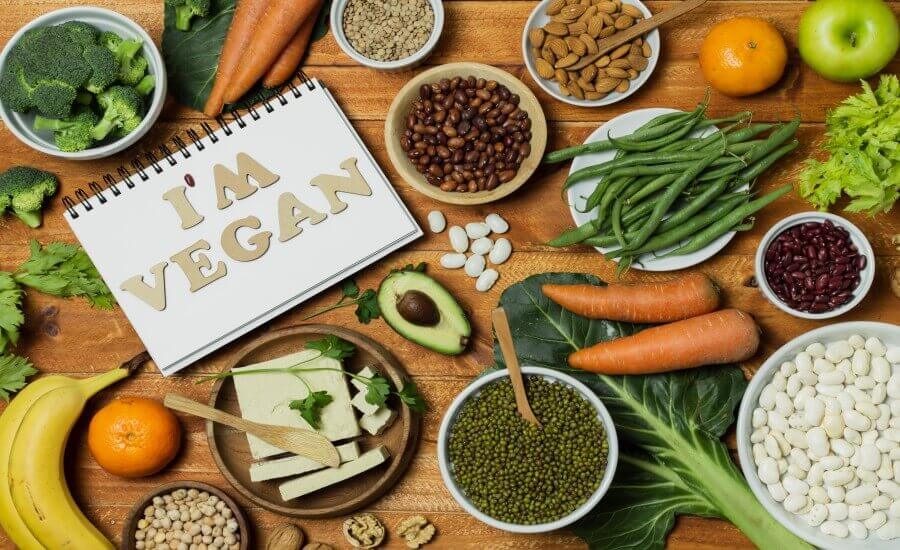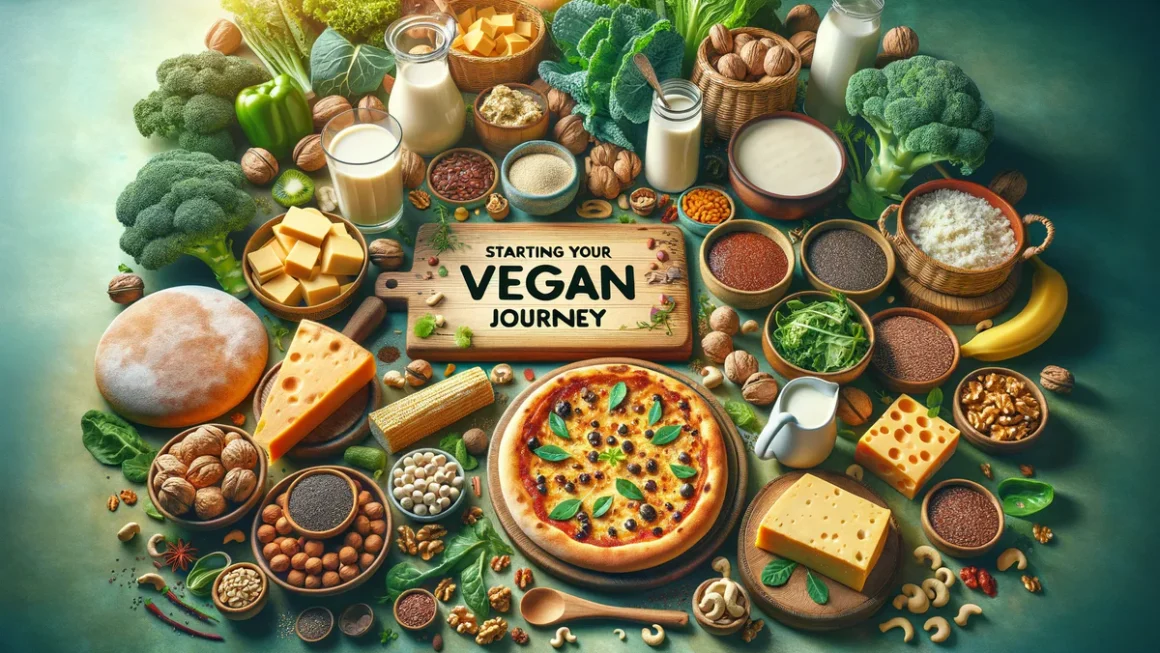Have you ever found yourself curious about the vegan diet? Perhaps you’ve heard whispers of the remarkable vegan diet benefits and are keen to understand more. This guide is designed to be your all-encompassing introduction to the universe of plant-based eating. We will journey through everything from a comprehensive vegan diet food list to the core tenets of a vegan raw diet. Whether your inspiration stems from a desire for better health, a commitment to animal welfare, or a concern for our environment, grasping the essentials of a vegan diet plan is the inaugural step on what could be a transformative path. Let’s delve into the essence of a vegan lifestyle and uncover the profound Veganism Benefits.
What is the Vegan Diet?
In its simplest form, a vegan diet is a dietary pattern that conscientiously excludes all products derived from animals. This includes the more obvious items such as meat, poultry, fish, and seafood. However, it also extends to other substances of animal origin, such as dairy products (milk, cheese, yogurt), eggs, and even honey. The motivations for adopting a vegan diet are diverse and often interconnected, generally falling into three primary spheres: health, ethics, and environmentalism. Health-conscious individuals are often attracted by the diet’s potential to mitigate the risk of chronic illnesses. Ethically driven vegans advocate for the right of animals to live free from human exploitation. Environmentally mindful vegans opt for this lifestyle to lessen their ecological footprint, as animal agriculture is a substantial contributor to greenhouse gas emissions and the depletion of natural resources.
Vegan Diet and Health
A common and legitimate inquiry is, “Is a vegan diet healthy?” The consensus from a multitude of health organizations is a resounding “yes,” with the important caveat that it must be well-planned. A balanced vegan diet can bestow a plethora of health advantages. Scientific studies have indicated that individuals who adhere to a plant-based diet tend to exhibit lower cholesterol levels, reduced blood pressure, and a diminished risk of heart disease. Moreover, a vegan diet is frequently linked with a lower body mass index (BMI) and a decreased susceptibility to certain forms of cancer.
Nonetheless, meticulous attention to nutrient intake is paramount. While a vegan diet can be exceptionally nutritious, there are potential long term effects of a vegan diet to be cognizant of if it is not managed with care. Nutrients that demand particular consideration include vitamin B12 (which is not naturally present in plant-based foods), iron, calcium, vitamin D, and omega-3 fatty acids. Through diligent planning and the judicious use of supplements when required, a vegan diet can robustly support a healthy lifestyle across all stages of life.
Types of Vegan Diets
Veganism is not a monolithic concept. A variety of vegan dietary approaches exist, affording flexibility to accommodate individual preferences and health aspirations.
- Whole-food Vegan Diet: This dietary pattern places a strong emphasis on whole, unprocessed plant-based foods such as fruits, vegetables, whole grains, legumes, nuts, and seeds. It is widely regarded as the most health-promoting form of veganism.
- Raw-food Vegan Diet: This approach involves the consumption of foods in their natural, uncooked state or heated to temperatures not exceeding 118°F (48°C). The underlying philosophy is that this method preserves essential nutrients and enzymes. Raw fruits and vegetables, nuts, seeds, and sprouted grains are the main components of a vegan raw diet.
- Junk-food Vegan: It is entirely feasible to be vegan while consuming a diet that is high in processed foods. Items like french fries, vegan desserts, and processed meat substitutes fall within this classification. While technically adhering to vegan principles, this approach does not confer the health benefits associated with a whole-food diet.
- The Thrive Diet: Popularized by the athlete Brendan Brazier, this is a raw-food, plant-based diet formulated to augment athletic performance and mitigate stress.
Best Vegan Diet Food List
Embarking on a vegan path is an exhilarating prospect, and a well-provisioned kitchen is a cornerstone of success. Here is a detailed vegan diet food list to help you get started:
- Fruits and Vegetables: Every fruit and vegetable is inherently vegan. Strive for a diverse array of colors to ensure you are consuming a broad spectrum of nutrients.
- Legumes: Lentils, beans (such as black, kidney, and chickpeas), peas, and soy products like tofu, tempeh, and edamame are superb sources of protein and fiber.
- Nuts and Seeds: Almonds, walnuts, cashews, chia seeds, flaxseeds, and hemp seeds deliver healthy fats, protein, and vital minerals.
- Whole Grains: Oats, quinoa, brown rice, barley, and whole-wheat bread and pasta provide complex carbohydrates for sustained energy release.
- Plant-Based Milks and Yogurts: Options like almond, soy, coconut, and oat milk are superb substitutes for dairy products. A growing assortment of vegan yogurts is also readily available.
- Healthy Fats: Avocados, olive oil, and coconut oil are wonderful additions to a well-rounded vegan diet.
Benefits of Eating a Plant-Based Vegan Diet
The advantages of adopting a plant-based vegan diet are numerous and thoroughly supported by evidence. Some of the most significant benefits are as follows:
- Enhanced Heart Health: Plant-based diets are naturally low in saturated fat and cholesterol, which fosters a healthier cardiovascular system.
- Weight Management: The high fiber content inherent in a vegan diet can promote a greater sense of satiety, aiding in weight management and loss.
- Reduced Risk of Type 2 Diabetes: A vegan diet can enhance insulin sensitivity and lower the risk of developing type 2 diabetes.
- Decreased Inflammation: The abundance of antioxidants and phytonutrients found in plant foods can help to quell inflammation within the body.
- Improved Digestion: The high fiber content encourages regular bowel movements and nurtures a healthy gut microbiome.
Vegan Diet Advantages and Disadvantages
As with any dietary strategy, there are both vegan diet advantages and disadvantages to take into account.
Advantages:
- Nutrient-Dense: A thoughtfully planned vegan diet is replete with vitamins, minerals, antioxidants, and fiber.
- Ethical and Environmental Congruence: For many individuals, this diet aligns with their deeply held values concerning animal welfare and the preservation of the environment.
- Health Benefits: As previously detailed, the potential health benefits are a significant motivating factor.
Disadvantages:
- Potential for Nutrient Deficiencies: Meticulous planning is essential to avert deficiencies in vitamin B12, iron, calcium, and omega-3 fatty acids. Supplementation is often a necessity.
- Social Hurdles: Dining out and participating in social gatherings can occasionally present challenges, although this is steadily improving as veganism gains mainstream acceptance.
- Initial Acclimatization Period: It can require some time to become familiar with new ingredients and cooking techniques.
Veganism Benefits
The advantages of veganism transcend personal health. Veganism benefits our planet and its inhabitants in truly profound ways.
- Environmental Preservation: Animal farming significantly contributes to deforestation, water pollution, and greenhouse gas emissions. Adopting a vegan diet substantially diminishes your environmental impact.
- Animal Welfare: By electing not to consume animal products, you are making a principled stand against animal cruelty and exploitation within the factory farming system.
- Global Food Security: A considerable proportion of the world’s crops are cultivated to feed livestock. A transition to a plant-based food system could play a role in mitigating global hunger.
Conclusion: Your Journey to a More Conscious Vegan Lifestyle
Embracing a vegan diet represents more than a mere change in your eating habits; it is a stride towards a more mindful and compassionate mode of existence. From the myriad vegan diet benefits for your personal health to the positive ripple effects on the environment and animal welfare, the justifications for exploring a plant-based lifestyle are compelling. While there may be an initial learning curve, the journey is replete with delectable discoveries and the profound contentment of aligning your daily choices with your core values.
Are you prepared to take the next step on this rewarding path? We encourage you to begin with small, manageable changes. Consider incorporating one new vegan meal into your weekly routine. Immerse yourself in the vibrant and diverse world of plant-based recipes available online and discover for yourself how flavorful and satisfying a vegan diet can truly be. Your body, the planet, and the animals will be grateful.












